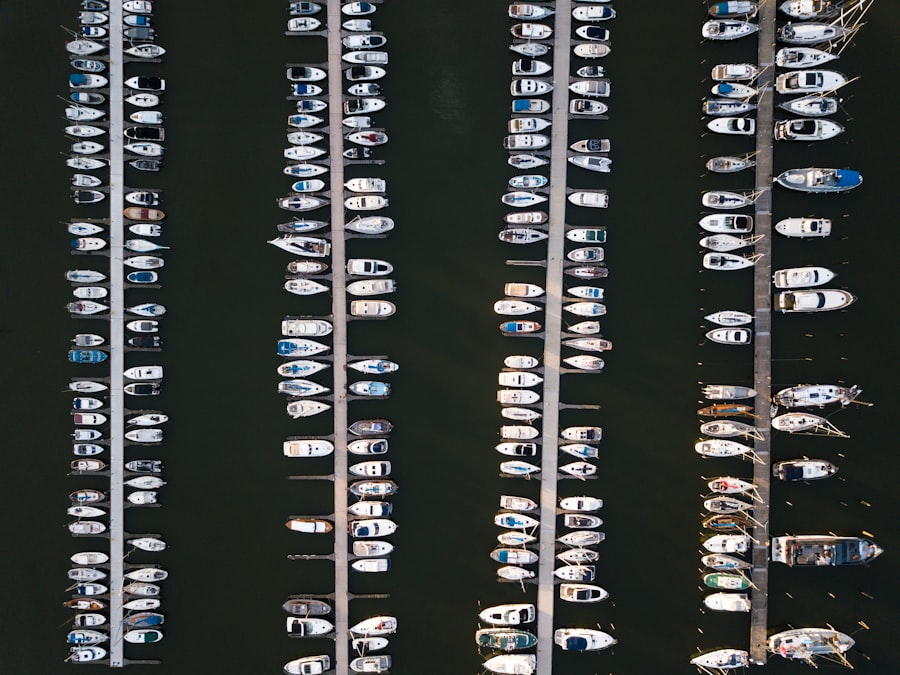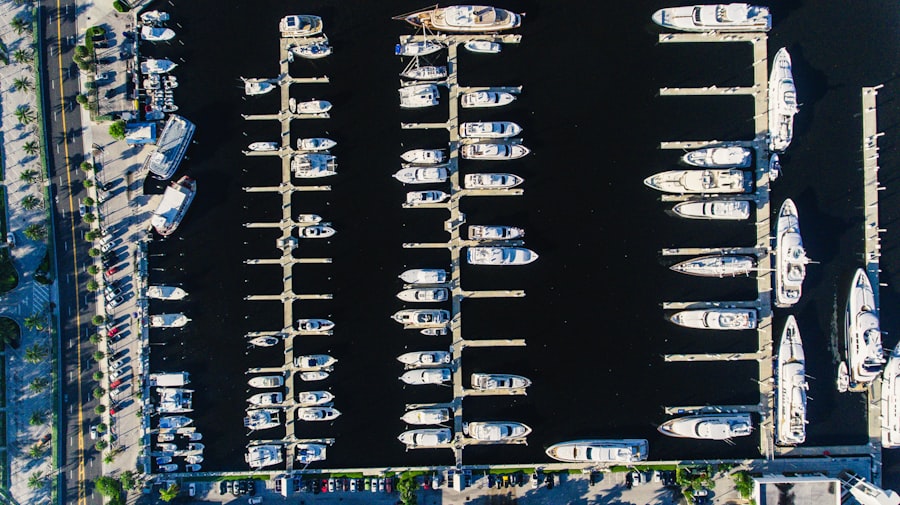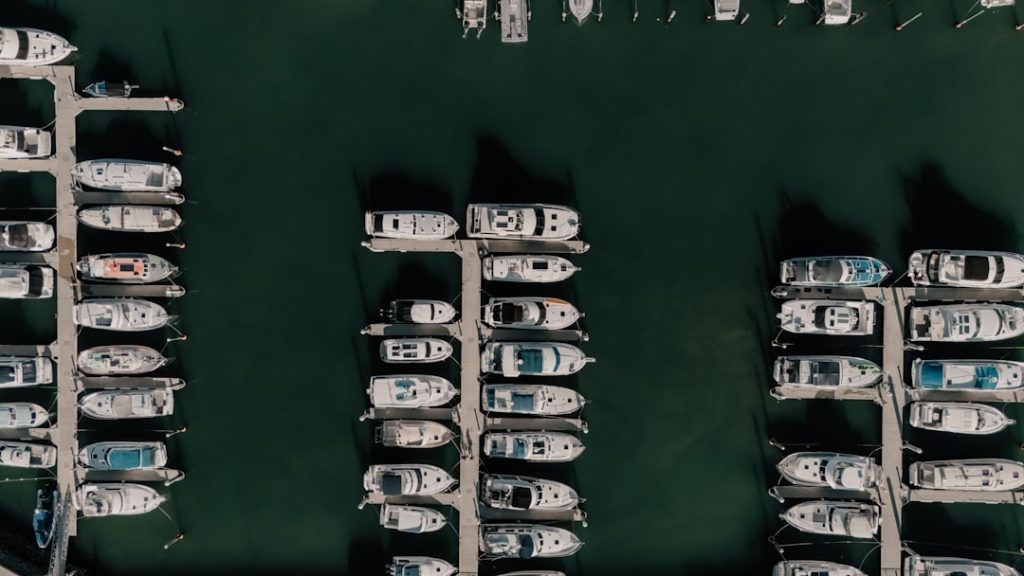Purchasing a boat opens up a world of possibilities for adventure and exploration. One of the most significant benefits is the freedom it provides. Owning a boat allows you to escape the confines of land and venture into vast bodies of water, whether they be lakes, rivers, or oceans.
This newfound freedom can lead to spontaneous weekend getaways, fishing trips, or leisurely days spent cruising with family and friends. The ability to chart your own course and explore hidden coves or secluded beaches is an enticing prospect that many boat owners cherish. Moreover, owning a boat fosters a unique connection with nature.
Being out on the water offers a serene environment that is often hard to find in our fast-paced lives. The gentle rocking of the boat, the sound of waves lapping against the hull, and the fresh air can rejuvenate the spirit. Activities such as fishing, sailing, or simply enjoying a sunset on the water can create lasting memories and strengthen bonds with loved ones.
Additionally, boating can be a fantastic way to engage with nature, observe wildlife, and appreciate the beauty of aquatic ecosystems.
Key Takeaways
- Buying a boat enhances your adventure opportunities and outdoor experiences.
- Local boat sales can be found through dealerships, online listings, and boat shows.
- Research various boat types to match your specific recreational needs and preferences.
- Consider all ownership costs, including maintenance, storage, insurance, and registration.
- Inspect used boats thoroughly and understand legal requirements before finalizing a purchase.
How to Find Nearby Boat Sales
Finding nearby boat sales can be an exciting yet daunting task, especially for first-time buyers. One effective method is to utilize online resources. Websites dedicated to boat sales, such as Boat Trader or YachtWorld, allow users to filter searches based on location, type of boat, and price range.
These platforms often provide detailed listings with photographs, specifications, and contact information for sellers. Additionally, local classifieds and community bulletin boards can yield valuable leads on boats for sale in your area. Another avenue to explore is local boat shows and expos.
These events typically feature a wide range of boats from various manufacturers and dealers, providing an excellent opportunity to see different models up close and even test them in the water. Engaging with knowledgeable sales representatives can also help clarify any questions you may have about specific boats or brands. Furthermore, networking with fellow boating enthusiasts at marinas or local sailing clubs can lead to insider information about upcoming sales or private listings that may not be publicly advertised.
Researching Different Types of Boats for Your Needs

When considering the purchase of a boat, it is crucial to research the various types available to ensure you select one that aligns with your intended use. For instance, if you are interested in fishing, a center console or bass boat may be ideal due to their design and functionality tailored for angling. These boats often come equipped with features such as rod holders, live wells, and ample storage for tackle and gear.
On the other hand, if your goal is leisurely cruising or entertaining guests, a pontoon or cabin cruiser might be more suitable, offering spacious seating and amenities for comfort. Additionally, understanding the differences between sailboats and powerboats is essential for making an informed decision. Sailboats rely on wind for propulsion and can provide a unique sailing experience that many find exhilarating.
However, they require a certain level of skill and knowledge about sailing techniques and navigation. Powerboats, conversely, offer speed and convenience but may come with higher fuel costs and maintenance requirements. Evaluating your preferences, lifestyle, and intended activities will guide you toward the right type of boat that meets your needs.
Understanding the Costs of Boat Ownership
| Cost Category | Typical Annual Cost | Description |
|---|---|---|
| Purchase Price | Varies | Initial cost of buying the boat, depends on size, type, and condition |
| Docking and Storage | 1,000 – 5,000 | Marina fees or storage costs when not in use |
| Maintenance and Repairs | 500 – 3,000 | Routine upkeep, engine servicing, and unexpected repairs |
| Fuel | 500 – 2,000 | Cost of fuel depending on usage and boat type |
| Insurance | 300 – 1,500 | Annual insurance premiums to protect the boat |
| Registration and Taxes | 100 – 500 | State registration fees and applicable taxes |
| Equipment and Accessories | 200 – 1,000 | Safety gear, electronics, and other accessories |
| Depreciation | Varies | Loss of value over time, typically 5-10% annually |
Owning a boat involves more than just the initial purchase price; it encompasses a variety of ongoing costs that potential buyers must consider. First and foremost are the expenses related to maintenance and repairs. Regular upkeep is essential to ensure the longevity and performance of your vessel.
This includes routine tasks such as cleaning, engine servicing, and hull inspections. Depending on the type of boat and its age, these costs can vary significantly. Insurance is another critical aspect of boat ownership that should not be overlooked.
Just like automobiles, boats require insurance coverage to protect against potential damages or liabilities. The cost of insurance can depend on factors such as the boat’s value, type, usage frequency, and your boating experience. Additionally, storage fees must be factored into your budget if you do not have space at home to keep your boat.
Whether you choose to dock it at a marina or store it on land during the off-season, these costs can add up quickly.
Tips for Negotiating the Best Deal on a Boat
Negotiating the price of a boat can be an intimidating process for many buyers; however, being well-prepared can significantly enhance your chances of securing a favorable deal. Start by conducting thorough research on comparable boats in your area to understand market prices. This knowledge will empower you during negotiations by providing concrete data to support your offer.
Additionally, being aware of any flaws or necessary repairs in the boat you are interested in can serve as leverage in discussions about price reductions. Another effective strategy is to approach negotiations with a clear budget in mind while remaining flexible. Establishing a maximum price you are willing to pay will help you stay focused during discussions.
However, being open to compromise can lead to mutually beneficial outcomes. For instance, if the seller is unwilling to lower the price significantly but offers additional accessories or services—such as free delivery or included safety equipment—this could still represent a valuable deal for you.
Inspecting a Used Boat Before Making a Purchase

Before finalizing any purchase of a used boat, conducting a thorough inspection is paramount to avoid potential pitfalls down the line. Start by examining the exterior for any signs of damage or wear, such as cracks in the hull or discoloration in the paint. Pay close attention to areas where water may have infiltrated, as this could indicate serious structural issues.
Additionally, inspect the condition of the propeller and other hardware; any signs of rust or corrosion should raise red flags. Beyond visual inspections, it is advisable to conduct a sea trial if possible. This allows you to assess how the boat performs on the water—checking for responsiveness in steering, engine performance, and overall handling.
During this trial, listen for unusual noises that could signal mechanical problems. Furthermore, consider hiring a marine surveyor for an expert evaluation; their trained eye can identify issues that may not be immediately apparent to an untrained buyer.
Understanding the Legal Requirements for Boat Ownership
Boat ownership comes with specific legal responsibilities that vary by region and type of vessel. One fundamental requirement is registering your boat with the appropriate governmental authority; this process typically involves providing documentation such as proof of ownership and payment of registration fees. Registration not only legitimizes your ownership but also ensures compliance with local laws regarding boating safety and navigation.
In addition to registration, many jurisdictions require boaters to obtain specific licenses or permits before operating certain types of vessels—especially larger powerboats or those used for commercial purposes. Familiarizing yourself with local regulations regarding safety equipment requirements is also crucial; many areas mandate life jackets, fire extinguishers, and other safety gear onboard at all times. Understanding these legal obligations will help you navigate the complexities of boat ownership while ensuring compliance with maritime laws.
Preparing for Your First Adventure on Your New Boat
Once you’ve successfully purchased your new boat and navigated through all necessary preparations, it’s time to embark on your first adventure! Preparation is key to ensuring that your outing is enjoyable and safe. Start by familiarizing yourself with your boat’s systems and controls; understanding how everything works will boost your confidence while out on the water.
Take time to read through the owner’s manual thoroughly and practice operating essential features like navigation systems and safety equipment. Packing appropriately for your first trip is equally important. Create a checklist that includes all necessary items such as life jackets for all passengers, food and beverages for sustenance during your outing, sunscreen for protection against UV rays, and any fishing gear if that’s part of your plan.
Additionally, ensure that you have all required safety equipment onboard before departure; this includes flares, first aid kits, and fire extinguishers as mandated by local regulations. As you prepare for this exciting new chapter in your life as a boat owner, remember that patience is essential—both in learning how to operate your vessel effectively and in enjoying every moment spent on the water. Embrace the adventure ahead with enthusiasm and an open mind; each outing will provide opportunities for learning and growth as you become more comfortable navigating your new aquatic playground.


